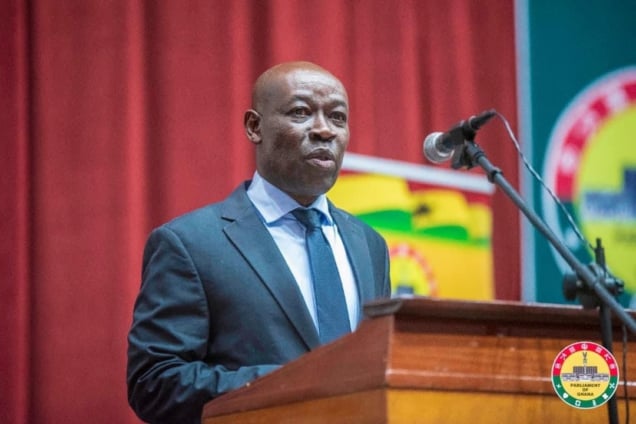The controversy surrounding the petition to remove Chief Justice Gertrude Araba Esaaba Sackey Torkornoo has taken a dramatic turn, escalating from a formal complaint into a public spectacle of accusations, denials, and heightened scrutiny. The core of the dispute centers around allegations of impropriety leveled against members of the five-member committee tasked with investigating the Chief Justice. Former NPP parliamentary aspirant Alfred Ababio Kumi lodged the petition, alleging a clandestine meeting between committee members and prominent lawyer Thaddeus Sory, raising concerns about potential bias and compromised integrity. This alleged meeting, purportedly held at Santoku Restaurant in Accra, is now the focal point of intense public debate, with Sory vehemently denying any such interaction and dismissing the claims as outright falsehoods.
Kumi’s petition, submitted to President John Dramani Mahama, paints a picture of a compromised investigative process. He alleges that Justices Gabriel Pwamang and Samuel Adibu-Asiedu, both members of the committee, were seen dining with Sory just hours after the committee’s inaugural session. Supreme Court Justice Yonni Kulendi’s alleged presence at the gathering further fuels Kumi’s assertion of a breach of protocol and potential collusion. Adding weight to his claims, Kumi asserts that the group was overheard discussing details of the petition, raising serious questions about the impartiality of the committee members and the fairness of the impending proceedings against the Chief Justice. This specific allegation, if proven, strikes at the heart of due process and casts a long shadow over the legitimacy of the entire investigation.
Sory’s response to the allegations has been swift and unequivocal. Utilizing the public platform of Facebook, he categorically denied the meeting ever took place, labeling the accusations a “monstrous lie.” His denial is firm and challenges the veracity of Kumi’s claims, offering a stark contrast to the narrative presented in the petition. Sory further bolstered his rebuttal by hinting at the possibility of verifying his whereabouts, suggesting the ease with which such a claim could be fact-checked. His concluding remark, “We know those who get justice through negotiation,” adds another layer of intrigue, possibly alluding to underlying motivations behind the accusations and insinuating a potential attempt to influence the outcome of the investigation through improper means.
This public exchange of accusations and denials has ignited a firestorm of debate and fueled public skepticism about the integrity of the committee. The controversy transcends a simple disagreement; it raises fundamental questions about the transparency and fairness of the process designed to investigate the Chief Justice. The seriousness of the allegations and the prominence of the individuals involved, including members of the judiciary and a well-known lawyer, have magnified the public’s interest and amplified calls for accountability. The unfolding drama threatens to undermine public trust not only in the specific committee but also in the broader judicial system if these allegations are not thoroughly and impartially investigated.
The pressure now mounts on President Mahama to address the allegations and ensure a credible and transparent process. The integrity of the judiciary is at stake, and the president’s response will be crucial in restoring public confidence. The calls for an independent inquiry into the alleged meeting are growing louder, with many demanding a thorough investigation to ascertain the truth and hold those responsible accountable. The future of the Chief Justice hangs in the balance, and the outcome of this controversy will undoubtedly have long-lasting implications for the Ghanaian legal system. The public demands answers, and the onus is on the relevant authorities to ensure a fair and impartial resolution to this escalating crisis.
The committee, formed on April 22, 2025, finds itself at the center of a storm, its credibility severely challenged. The allegations of impropriety have cast a dark cloud over its proceedings, and the demand for transparency and accountability has intensified. The fate of Chief Justice Torkornoo hinges on the committee’s ability to navigate these turbulent waters and conduct a fair and impartial investigation. The public’s trust in the judiciary hangs in the balance, making the committee’s next steps critical in restoring confidence and upholding the principles of justice. The unfolding events will undoubtedly shape the future of the Ghanaian legal landscape, setting a precedent for how such sensitive matters are handled and emphasizing the importance of maintaining the integrity of the judicial process.














